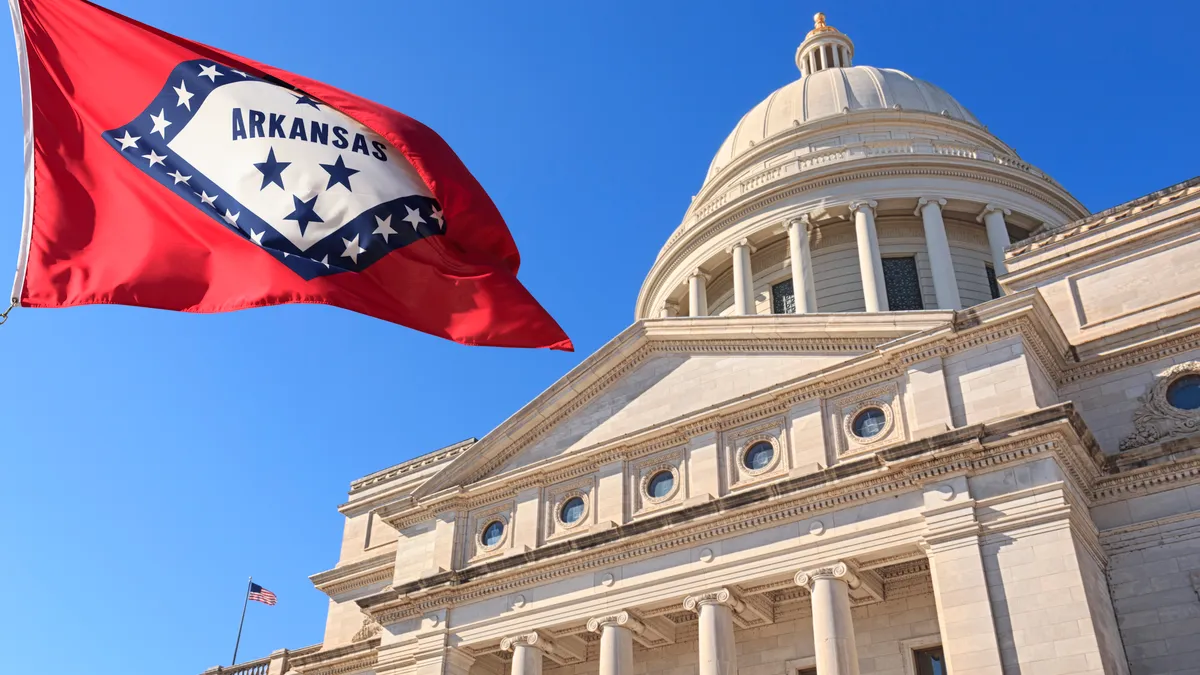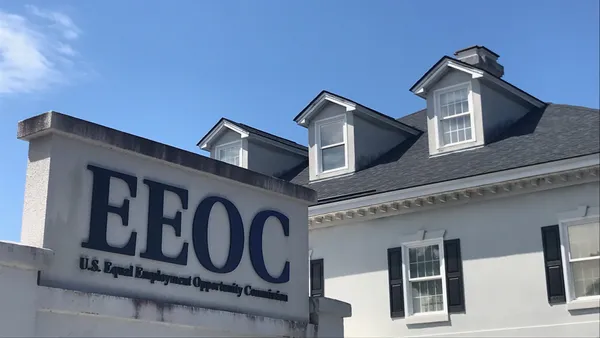Dive Brief:
- A policy director from American Principles Project, a Virginia-based conservative organization, told members of the Arkansas State Legislature last week that defunding all diversity, equity and inclusion programs was the best way forward for “solving animosities between racial groups.” This includes programs from government institutions, schools and corporations.
- The representative, Jon Schweppe, called DEI an agent of racial discrimination itself that “provides opportunities for some while cheating others” and has a “negligible effect or possibly even a negative one” on addressing racial injustice when testifying before lawmakers during a Joint Performance Review committee meeting.
- Last week’s meeting is part of ongoing discourse among Arkansas lawmakers on DEI. The Arkansas Legislative Council authorized a study of DEI practices in colleges and universities across the state in August per the request of a higher education subcommittee, which is considering proposing legislation on the matter in 2025.
Dive Insight:
Schweppe told lawmakers DEI is a “dystopian idea” that is “predicated on explicit racial and sexual stereotyping, demonization and discrimination.” He also claimed DEI initiatives prevent people from being treated as unique individuals with unique experiences by categorizing them as representatives of a larger racial or sexual class.
“Governments should not be picking winners or losers based on race, and neither should private institutions,” Schweppe said, advocating for Congress and state governments to use “the power of the purse” to limit funding for DEI initiatives.
He also stated DEI programs and affirmative action initiatives prohibit people who may identify as a “wealthy white male” from having their candidacy assessed in a fair manner as they don’t belong from a marginalized or disadvantaged group, which results in “explicit discrimination in hiring, promotion and various other opportunities.”
While there are several critics of defunding DEI programs, the Virginia-based director is not the first in the state to push for restrictive measures on DEI programs. Earlier this year, state Sen. Tom Cotton wrote to 51 law firms across the country, asking them to steer away from DEI hiring policies to satisfy “‘environmental, social and governance’ mandates” as they discriminate based on race. The Republican senator called such initiatives “both unpopular and unlawful,” warning firms of future investigation and litigation should they continue to implement DEI policies within their corporate framework.
Notably, Walmart — headquartered in Bentonville, Arkansas — has implemented several DEI initiatives and advocates for an “everyone included” policy within its workplace culture. In 2020, it launched a Culture, Diversity, Equity & Inclusion Institute to help build inclusive leadership skills. The retailer publishes a separate DEI report every year.
In the education sector, Arkansas Gov. Sarah Huckabee Sanders, a first-term Republican, signed an executive order banning “indoctrination and critical race theory” in K-12 school curriculums in January, that prevents students from learning about systematic racism and its role within American society.
Shortly after the order was signed, the University of Arkansas, Fayetteville, announced in June it was shuttering its diversity, equity and inclusion office, describing the move as the “best way to fulfill [its] land-grant mission of access and opportunity for all.”
The Arkansas Legislative Council Higher Education subcommittee said in August it would conduct a study and evaluate DEI programs in Arkansas colleges and universities through the end of 2024 with the intention of proposing legislation during the 2025 session. The study was proposed by state Sen. Dan Sullivan — not to be confused with Alaska’s junior senator of the same name — who also sponsored a bill to end state-sponsored affirmative action earlier this year that was ultimately dismissed on the House floor.
DEI programs and initiatives have increasingly faced opposition from some government and academic institutions as of late. The U.S. Supreme Court struck down affirmative action in college admissions in June, impacting race-conscious admission decisions across the country. The court’s ruling — which was based on a case concerning admissions at Harvard University and the University of North Carolina at Chapel Hill — stated that race-conscious admission practices were unconstitutional, shattering decades of legal precedent.
The Supreme Court held that the universities’ admissions processes infringed on the 14th Amendment’s guarantee to equal protection under the law.
But, the decision has been described by some high school counselors as a blow to marginalized applicants in particular, and disregards socioeconomic hardships and episodes of prejudiced behavior endured by them.














